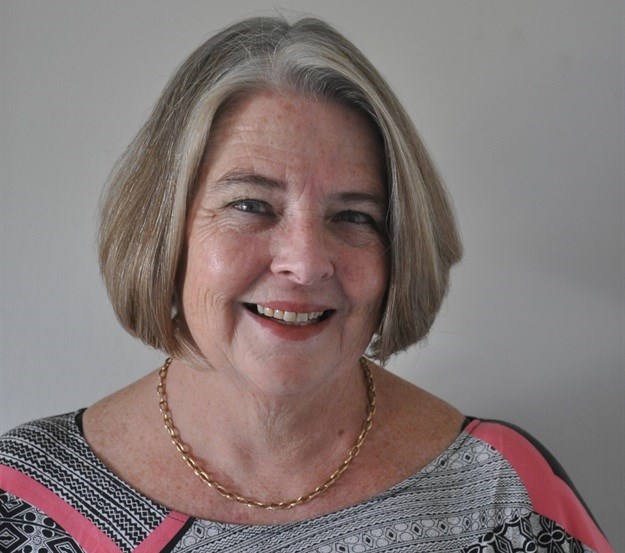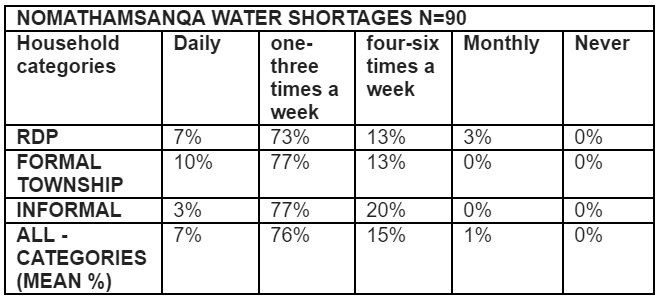





When looking at specific provinces like the Eastern Cape to examine primary sources of water in Nomathamsanqa, for example, the following is outlined:


These results show a variation in the extent of primary water sources available to households, with the Vukani residents having near universal access (99%) to taps in or near the household. The figure in Nomathamsanqa was far lower for informal settlement residents who were reliant on a neighbour’s garden tap.
With that said, does that mean we can ignore public protests? Ignore the people struggling desperately to care for the elderly in homes without water for days and weeks at a time? Ignore the moms with children who miss days of school because of diarrheal disease? Ignore the women who still move household water by hippo-roller, wheelbarrows or on their heads?

Definitely not. Our research shows clearly that, in South Africa, smaller municipalities struggle most with reliable household water supply. There are many reasons for this and it seems as soon as one cause is addressed another kicks in and the taps remain dry. Some of these causes are well known. I have examined more specifically the challenges behind the interrupted water supply in the community of Lower Sundays River Municipality in the Eastern Cape:
When examining the numbers in the local residential area of Nomathansaqua, the community experienced serious water supply interruption:

Understandably, it would be naïve to imagine the multiple challenges facing small municipalities will be solved quickly.
Solutions need to be actioned and actioned quickly. Even after it was clearly noted that the irrigation organisers in the water user association needed to have a service level agreement with the municipality in place, this failed to be drafted and signed.
A big part of ensuring accurate data is recorded to fully understand the challenges at hand in order for the right decisions to be made and implemented, research funding and activities need to continue.
We need to maintain open dialogue with communities to ensure the solutions really do solve their challenges and concerns. For example in the Vukani suburb in Makana Municipality, Eastern Cape, local residents partnered with the university to document water supply experiences. They were also included in outlining preferred solutions. It then became apparent that the community wanted 250l water storage capacity (water tanks) in their homes where they can control access and quality. They fill the tanks when there is water in the taps, and this capacity is able to see them through any water interruptions.


This resulted in more residents showing the willingness to contribute financially to a meaningful water storage solution:

Understandably, this solution will not be suitable in areas where there is no supply, but there are many areas with some provision of piped water that is simply unreliable.
Looking at a more long-term and sustainable solution, I strongly suggest that every household installs water storage tanks as soon as possible. Household water tanks, with proper use, is a safe and healthy way to use water in our homes. Together with public-private partnerships, local private enterprises, water tank suppliers and local entrepreneurs who can secure, keep stocks of as well as sell and deliver tanks. Working together with municipalities will ensure every household in the affected areas has a secure water supply.
Unilever is leading the charge and piloting such partnerships. But the success of this will be in the collective action of us all. Unilever is currently seeking other partners to ignite its solution - Water for People. While the company works hard to bring on partners, they too share regular information about how to save water, understand where leaks comes from and how to fix them, ultimately encouraging the public to become People for Water.